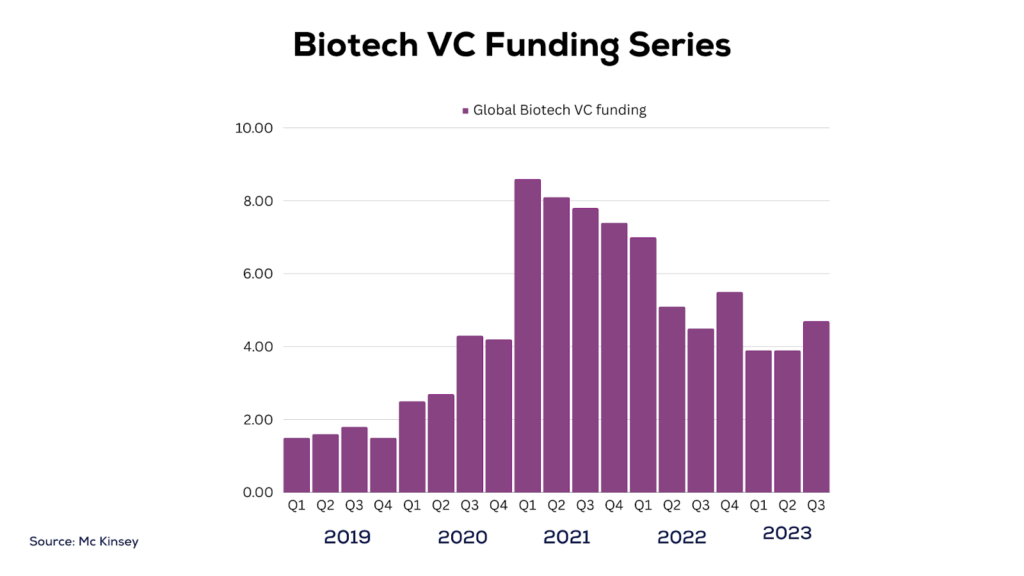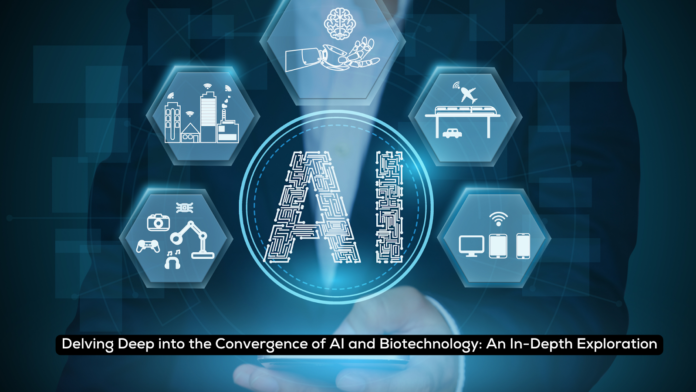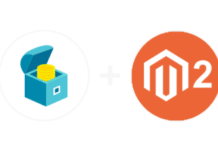Last Updated on January 11, 2026 by Rida Gul
The convergence of artificial intelligence and biotechnology is transforming healthcare and human enhancement. By combining AI’s predictive capabilities with biology’s intricacy, diseases can now be predicted earlier, and treatments personalized to an individual’s unique biology rather than a one-size-fits-all approach.
This amalgamation is poised to profoundly improve health and longevity. Catalyzed by parallel progress in both fields, innovations range from genetic engineering to implantable brain-computer interfaces. However, concerns about regulation, ethics, and unintended consequences have emerged amidst this disruption.
This article delves into the breakthroughs and opportunities of AI and biotech mergers while examining the complex challenges ahead as these technologies continue to integrate at an exponential pace.
Table of Contents
The Catalysts for Convergence
Recent breakthroughs in machine learning, neural networks, and other cutting-edge AI technologies have powered the integration with biotechnology. Coupled with progress in gathering and analyzing molecular and genomic data, AI is propelling a revolution in disciplines ranging from drug discovery to clinical diagnostics.
Additionally, the growing demand for personalized and precision medicine solutions has put biotechnology and healthcare firms under pressure. By incorporating AI into research, product development, and patient treatment protocols, there is now the potential to cater to individual biological differences and to democratize access to the latest innovations.
The growth in datasets, computational power, and novel algorithms has enabled the convergence of AI and biotech.
Transformative Impacts on R&D
AI is significantly enhancing the speed, accuracy, and outcomes of biopharmaceutical research and development:
- Advanced AI techniques help glean meaningful insights from the complex patterns in massive genomic datasets that have emerged from high-throughput sequencing innovations. This has reduced drug discovery timelines significantly.
- Through the simulation of biological systems and prediction of clinical trials, AI algorithms can reduce R&D costs substantially.
- In 2020, an AI model developed at Atomwise successfully screened over 1 billion molecular compounds quickly, achieving results that would take humans many years.
AI is revolutionizing biotechnology R&D, leading to faster drug discovery pipelines and rapid advancements across application areas.

AI in Genomic Sequencing and Editing
Advanced AI techniques help glean meaningful insights from the complex patterns in massive genomic datasets that have emerged from high-throughput sequencing innovations. As a forward-looking biotech marketing agency might pitch to its genomic analysis clients, AI has the power to transform this data into actionable preventative interventions and personalized medicines tailored to an individual’s genetics.
Human genetic datasets harbor immense potential for developing preventative healthcare and personalized medicines:
- High-throughput sequencing has led to an explosion of genomic data. Advanced AI techniques help glean meaningful insights from the complex signal-to-noise patterns in these massive datasets.
- AI applied to integrate whole genome, microbiome, and longitudinal multi-omics data helps predict onset risk for diseases like cancer significantly earlier compared to traditional diagnostics. Researchers can also infer how individuals might respond to certain treatment types based on genetics.
- Novel machine learning approaches aid genome analysis to identify key causal mutations behind certain diseases hastily. This supports gene therapy techniques in targeting only disease-linked mutations for correction while preserving harmless genetic variability.
Let me know if you need any other specific sections expanded. I aimed to enrich details around the workflows and demonstrate tangible use cases across discovery, diagnostics, and treatment applications.
Revolutionizing Patient Diagnostics and Treatment Plans
Leveraging the prowess of AI in genomics and molecular simulation, the algorithms can enable accurate, rapid, and cost-effective diagnostic testing. They also open the door for truly personalized treatments.
Consider these innovations in patient-centered AI applications:
- AI imaging algorithms that can detect cancer from routine blood tests with high accuracy, replacing invasive biopsies.
- Chatbot screening tools combined with AI diagnostic models can predict complex diseases accurately.
- AI-designed patient avatars that replicate physiology, allowing simulation of therapies.
These advances demonstrate how AI stands to transform diagnostics and enable precision medicine based on a patient’s genomic and molecular profile.
The Synergy Effect: Enhancing Biotech Manufacturing
Beyond accelerating research and healthcare, AI optimizations are boosting efficiencies across biomanufacturing:
- Automated robotic systems driven by machine learning enhance production line tasks.
- Predictive data models provide actionable insights to improve various processes substantially.
- Bio Manufacturers using AI have realized increased output and reduced production costs.
These impressive efficiency gains and waste reductions showcase how AI can enhance productivity, lowering costs and environmental impact as biotech solutions scale towards mainstream adoption.
However, as innovations translate from the lab to full-fledged manufacturing, balancing rapid progress with proper safety checks and controls remains paramount.
Ethical and Regulatory Challenges
The application of AI across the biotechnology landscape raises pressing ethical and regulatory dilemmas:
- Patient privacy, informed consent for data gathering, ensuring testing/treatment access equity.
- Transparency around AI-based diagnostics, given their black-box nature.
- Setting protocols and limits on human genome editing to avoid moral hazards.
- Monitoring biases hidden in AI algorithms affecting research outcomes or physician decision-making.
Governments are taking action – the EU’s new AI Act proposes risk-based regulations, particularly for high-risk areas like healthcare. However, flexible policies that evolve with technological change are needed.
Ultimately, open and honest discourse between scientists, ethicists, policymakers, and the public is vital for developing ethical frameworks that enable cutting-edge innovations responsibly.
Future Horizons: Predicting the Next Decade
Based on the incredible momentum over the past few years, the convergence of AI and biotechnology could unlock groundbreaking advances by 2030:
- Mainstream adoption of AI-driven preventative and precision medicine solutions.
- Biosensors and wearables provide continuous patient monitoring powered by edge AI.
- Rapid pandemic threat response through AI-based viral genome characterization and accelerated vaccine/therapeutic development.
- Potential ethical breakthroughs if complex moral issues are tackled responsibly as technologies continue advancing.
However, fully realizing this potential hinges on sustained collaboration across disciplines paired with public and private funding for both foundational and translational research.
FAQs: Answering Key Questions
What are the main ethical issues posed by using AI in biotechnology?
Core issues center around privacy, consent, bias/accuracy in AI diagnosis and decision tools, access equity for AI-enhanced solutions, and appropriate limits on human genome editing. Scientists and governments are working on ethical risk assessment protocols and regulation but open discourse for developing flexible guardrails as technologies continue advancing will be key.
How does AI improve the drug discovery process?
AI algorithms massively accelerate initial compound screening and predictive modeling steps, narrowing down to the most promising candidates months faster than human counterparts. This results in substantial cost and time reductions for getting new treatments through clinical trials and regulatory approval based on robust evidence.
Can AI enable personalized medicine to become standard practice?
Yes, by unlocking precise patient genetic data correlation with health/disease states and drug response profiles. But for precision diagnostics and treatments to become ubiquitous, improved access and healthcare integration must be tackled. Wider adoption will depend on addressing cost barriers and ethical concerns around data privacy as well.
Conclusion
The amalgamation of AI and biotechnology heralds an era of rapid, transformational innovations that could profoundly enhance clinical outcomes and even extend human lifespan. However, deliberate efforts are needed to develop ethical frameworks and policies to keep pace with technological change. If the scientific community, governments, and the public come together, the promise of dramatically advancing human health could be achieved responsibly and equitably within a decade.
Apart from that if you want to know about “Artificial Intelligence: Revolutionizing The Future And All Other Information” then please visit our “TECHNOLOGY” Category.



























